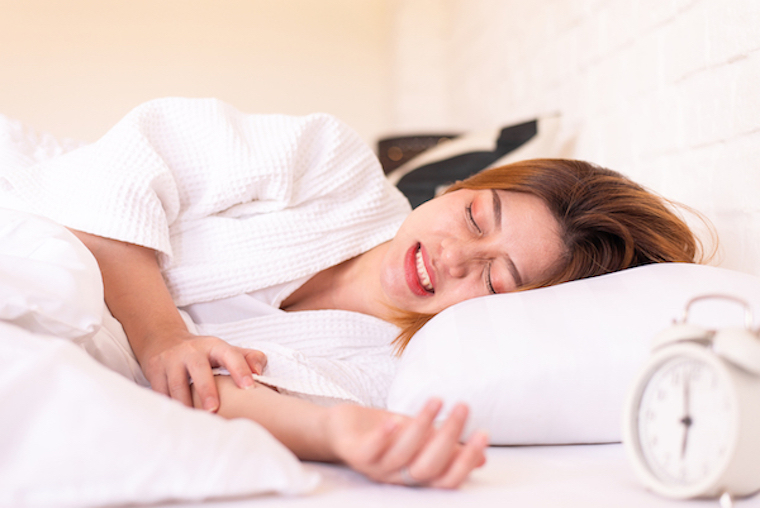Teeth Grinding Relief
Teeth grinding and clenching are part of a condition called bruxism, which over time can damage your teeth. We offer treatment options that help you get relief.
What is teeth grinding?
Teeth grinding and jaw clenching are involuntary reactions to anger, fear, or stress. Sometimes this reaction plays out repeatedly throughout the day, even if you aren’t responding to an immediate stressor. Involuntary teeth grinding is known as bruxism and can occur at any age and for various reasons.
If you suffer from teeth grinding, schedule an appointment with one of our sleep specialists today.
Bruxism can happen while awake or asleep, but you are less likely to know you’re grinding your teeth when sleeping. Bruxism can lead to tooth wear and breakage, which contributes to altering a person’s bite (occlusion). This, in turn, can result in TMJ disorder, which causes nagging to debilitating symptoms.
It is important to stop bruxism so your teeth and bite remain in good health. If teeth are repaired but grinding still occurs, new dental work will become worn and broken.
Symptoms of Teeth Grinding
- Episodic clenching and grinding throughout the night
- Morning tension headaches
- Sore jaw and/or neck upon waking
- Unexplained damaged teeth
- Sleep partner makes you aware of grinding sounds at night
Causes of Teeth Grinding
Teeth grinding and clenching can be caused by stress and anxiety, though it often occurs during sleep and is more likely caused by an abnormal bite or missing or crooked teeth. Additionally, sleep disorders such as sleep apnea can exacerbate this condition. Other factors that might contribute to teeth grinding include:
- Sleep Apnea
- Cigarette smoking
- Alcohol consumption
- Caffeine Intake
- Depression
- Snoring
- Genetics
- Low Iron
Treatment for Teeth Grinding
Stress reduction and relaxation techniques are important if stress is contributing to your condition. Improving your sleep hygiene or working with a therapist may help as well.
Your dentist may recommend a type of oral appliance, sometimes called bite splint, to prevent teeth grinding and clenching and reduce damage to your teeth and mouth. Many varieties of bite splints are available and sometimes daytime appliances are necessary as well.
Bite Splints are made to prevent your teeth from touching each other. Ideally, they have a flat surface to glide across when you move your teeth up and down or side to side. The flat surface sends signals to your brain, enabling the muscles to relax and spasms to stop. This type of bite splint requires special bite records and extra care adjusting the bite splint, allowing the teeth to contact the flat surface in the correct spots and with the correct pressure.
At your consultation, your dentist assesses your tooth wear, recommends an appliance to eliminate bruxing, and then rebuilds the compromised teeth to restore your bite to the optimal position.
Schedule an appointment with us today to determine if you suffer from teeth grinding or to discuss oral appliance therapy as a treatment option.

